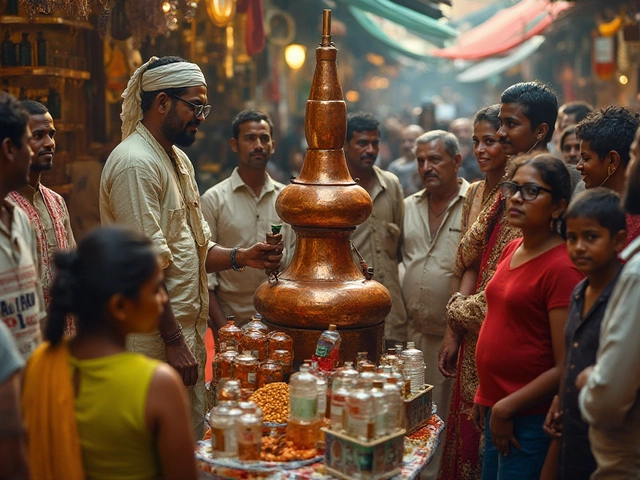Cons of Mocktails: The Real Downsides You Should Spot
If you think swapping a cocktail for a mocktail automatically makes your night healthier, pause for a second. Mocktails can sound perfect—fancy glass, bright colors, zero booze—but they often hide problems that can mess with your goals.
First up, sugar. Many recipes rely on syrups, juices, or soda to create that sweet punch. A single serving can pack the same amount of sugar as a soda can, sending your blood sugar sky‑high and adding unwanted calories. Even “natural” fruit juices contain fructose, which still contributes to weight gain if you drink them daily.
Sugar and Calorie Surprises
When you order a mocktail at a bar, the bartender usually adds a splash of simple syrup or a flavored mixer. Those hidden calories add up fast. A typical mocktail can range from 150 to 300 calories, which rivals many regular cocktails, especially when you factor in the extra fruit garnish. If you’re counting calories, you’ll need to treat mocktails like any other sugary drink.
Another issue is artificial ingredients. Many pre‑made mixes contain preservatives, artificial flavors, and coloring agents to keep them looking vibrant. While they’re safe in moderation, frequent consumption can expose you to additives you might otherwise avoid in a plain water or tea.
Flavor Gaps and Satisfaction
Alcohol gives a certain warmth and complexity that non‑alcoholic mixes often miss. Without the burn of spirit base, mocktails can feel flat, leaving you reaching for another glass. That can lead to over‑drinking the non‑alcoholic version, negating the calorie benefit and still leaving you unsatisfied.
Social perception also plays a role. At gatherings, a mocktail might draw curious looks, but it can also signal that you’re not participating fully in the drinking culture. That pressure may push you to order more drinks or feel left out, especially if the event revolves around a cocktail theme.
Cost is another hidden con. Craft mocktails use premium juices, fresh herbs, and often boutique non‑alcoholic spirits. Those ingredients cost more than a simple soda, and bars price them accordingly. You can easily spend as much on a mocktail as you would on a classic cocktail.
Lastly, not all mocktails are as “healthy” as they appear. Some contain caffeine from tea or coffee bases, which can affect sleep if you enjoy them later in the day. Others are high in sodium from tonic water or certain flavored sodas, which can be an issue for people watching their salt intake.
So, what’s the smart move? If you love the flavor, try making your own at home with fresh ingredients, limit the added sugar, and skip the pricey mixers. Opt for sparkling water, a splash of fresh citrus, and herbs you already have. That way you keep the fun without the hidden downsides.
Remember, mocktails aren’t automatically the healthier pick. Look at the ingredient list, watch the calories, and choose options that actually support your health goals. When you know the cons, you can enjoy the pros without the surprise side effects.






Categories